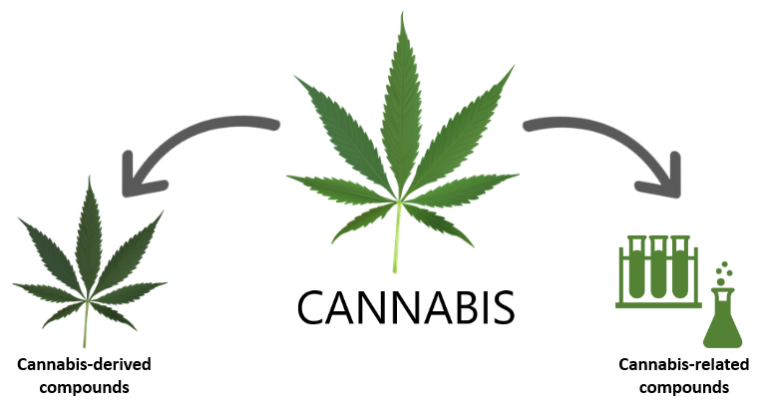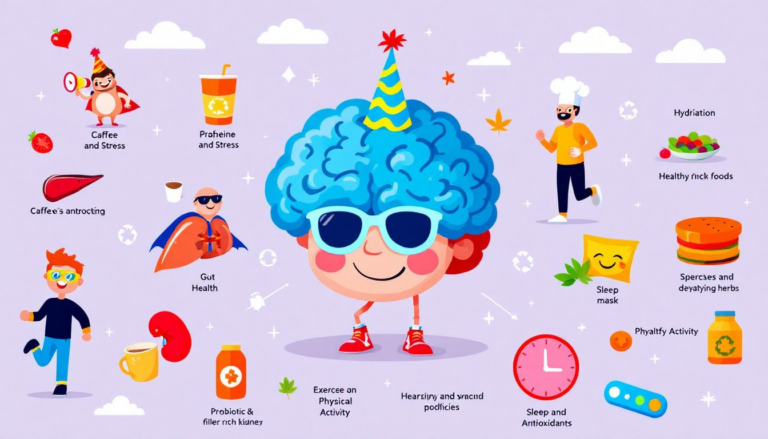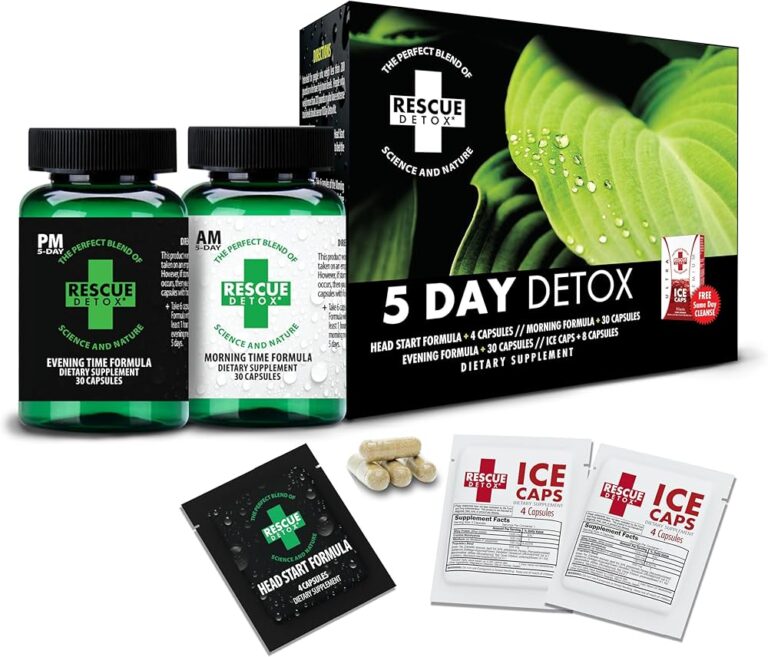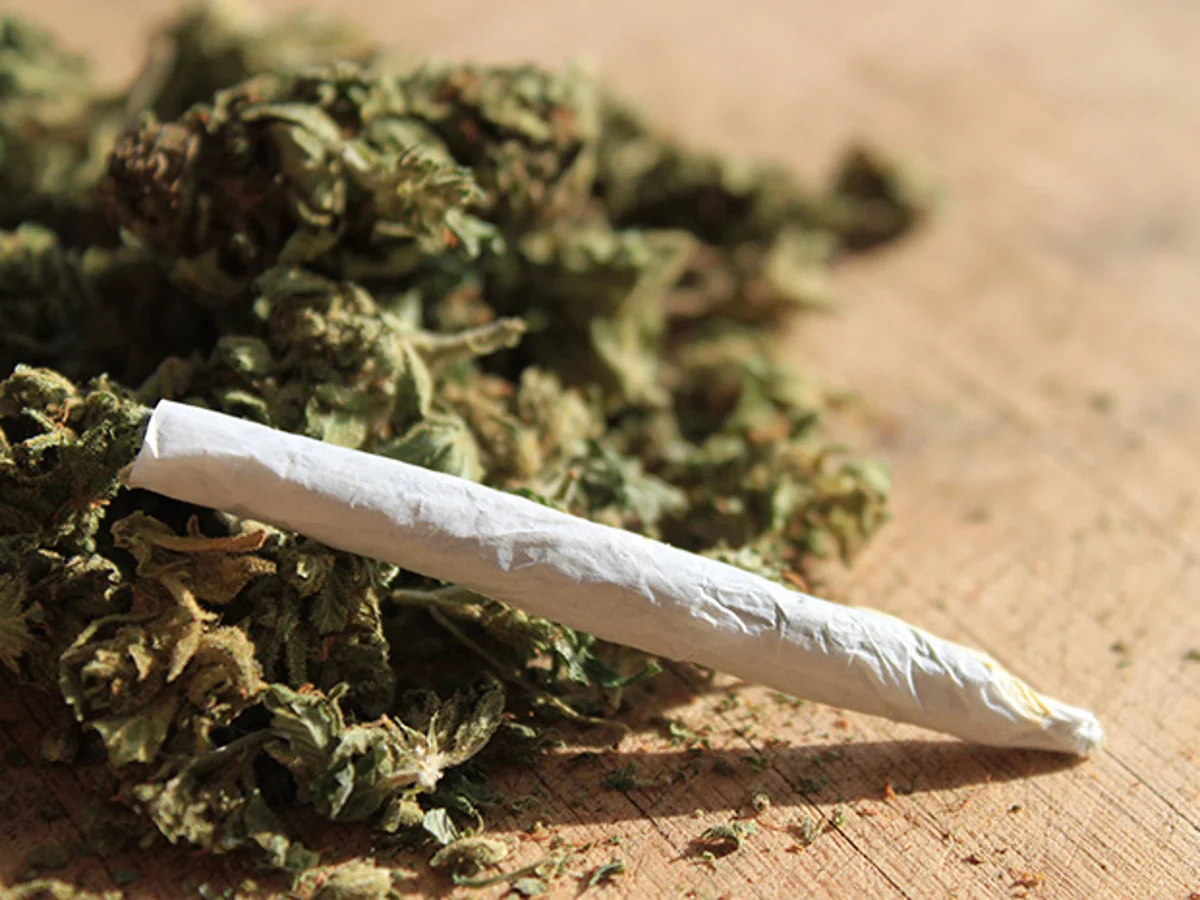Trying to get THC out of your system? This guide will help you understand how to get THC out of your system effectively. Whether it’s for a drug test, health reasons, or quitting marijuana, learn effective detox methods, natural tips, and how to handle withdrawal symptoms.
Key Takeaways
THC metabolites can remain in the body for varying durations based on factors like body fat percentage, frequency of use, and metabolism, making understanding these elements crucial for effective detox.
Natural detox methods such as hydration, a balanced diet, regular exercise, and adequate sleep are effective strategies for flushing THC from the system and supporting overall health.
Commercial detox products can pose health risks and may not be effective; thus, it is advisable to consider safer, natural alternatives for detoxification and consult healthcare professionals as needed.
Table of Contents
Understanding Weed (THC) and Its Effects on the Body

Weed also known as THC, or tetrahydrocannabinol, is the primary psychoactive component of marijuana that produces mind-altering effects. This compound interacts with cannabinoid receptors in the brain, leading to various mental and physical health effects such as anxiety, impaired coordination, and increased risk-taking behaviors. Chronic marijuana users may experience more pronounced effects due to prolonged exposure to THC, which can lead to marijuana use disorder and other health complications.
Marijuana addiction can be a serious issue for regular marijuana users. The body depends on THC to produce certain effects, and when the usage stops, withdrawal symptoms can occur. Recognizing marijuana use and its effects on the body is crucial for effective detox.
How THC Metabolizes in the Body
The method of consumption significantly influences how quickly THC enters the bloodstream. Once in the body, THC is primarily processed in the liver, where it is transformed into various metabolites, including 11-hydroxy-THC and carboxy-THC. These metabolites are responsible for the prolonged effects of THC and are the primary targets in drug tests. The body process THC is essential to understanding these effects.
Knowing how long weed remains in your system is crucial for detox. THC metabolites can stay in your system for varying periods depending on several factors, including how the body processes THC, the frequency of marijuana use, and the individual’s metabolism. For example, in chronic marijuana users, weed remains in fatty tissues longer than in occasional users.
Factors Influencing THC Detox

Several factors influence how long THC stays in your system and the effectiveness of the detox process. One key factor is body fat percentage. THC has an affinity for fat tissues, meaning individuals with higher body fat may retain THC for longer periods. Genetics and metabolic rate also play significant roles in how quickly the body processes THC and its metabolites.
The frequency of marijuana use is another critical factor. Occasional users typically clear THC from their system faster than chronic marijuana users, who may take significantly longer to detox. Additionally, the potency of the marijuana consumed can influence how long THC stays in the system. Stronger strains with higher THC levels result in longer detection times.
Other factors such as concurrent use of medications can either speed up or slow down THC metabolism. Understanding these variables can help in planning an effective detox strategy and in preparing for potential drug tests to detect marijuana use.
Natural Methods to Detox THC
Natural methods to detox THC are often preferred due to their holistic approach and minimal side effects. Key strategies include:
Staying hydrated
Maintaining a healthy diet
Engaging in regular physical activity
Ensuring adequate sleep and rest
These methods support the body’s natural detoxification processes and promote overall well-being.
Hydration and Diet
Proper hydration is crucial for flushing THC metabolites from the system. Drinking plenty of water supports the kidneys and liver in filtering out toxins, including THC. Alongside hydration, a healthy diet rich in fiber, protein, and antioxidants can significantly aid in the detox process.
Cranberry juice is a popular natural diuretic that can help increase urine output, expelling THC from the body more quickly. Fresh cranberry juice also provides antioxidants that are beneficial for skin and overall organ health during the detox process. Additionally, herbal supplements like milk thistle and dandelion root are known for their liver-protecting properties, which can assist in detoxification.
Adopting a diet that includes these natural remedies and maintaining proper hydration can enhance the body’s ability to detoxify and support overall health during the marijuana detox process.
Exercise and Physical Activity
Exercise is a powerful tool in the THC detox process. Physical activity promotes sweating and fat burning, which helps flush THC from the fatty tissues faster. Regular exercise not only enhances the detoxification process but also supports physical and mental health, making it easier to maintain a balanced lifestyle.
Incorporating activities like jogging, swimming, or even yoga can significantly aid in long-term recovery from THC use. Combining a healthy diet with regular exercise can provide a comprehensive approach to marijuana detox and overall well-being.
Sleep and Rest
Quality sleep and rest are vital for supporting the body’s detoxification process. Getting enough sleep allows the body to repair itself and efficiently process THC.
Getting enough sleep and creating a restful environment can significantly enhance overall health during detox.
Commercial THC Detox Products

Commercial THC detox products are widely available and often marketed for their quick cleansing abilities. Brands like Stinger Detox and Rescue Detox claim to help users pass drug tests by flushing THC from their system. However, not all THC detox products are effective, and some may even pose health risks.
Potential health concerns associated with these products include possible liver dysfunction and psychotic symptoms. It’s essential to approach commercial detox kits with caution and consider the potential risks and benefits.
Urine drug tests are commonly used to detect marijuana use due to the high concentration of THC in urine, making it crucial to choose the right detox method.
Home Remedies for THC Detox

Home remedies for THC detox are popular due to their natural approach and accessibility. Cranberry juice is often used as a natural diuretic to increase urine output, potentially aiding in the removal of THC metabolites. Milk thistle, known for its liver-supporting properties, can enhance the body’s detoxification processes.
Other herbal supplements like dandelion root are also believed to aid in THC detoxification. These common home remedies, combined with a healthy lifestyle, can provide a natural and effective way to detox from THC and support overall health.
THC Detection Windows for Drug Tests
Understanding the detection windows for THC in various drug tests is crucial for anyone undergoing a marijuana detox. Factors such as frequency of use, metabolism, and body fat percentage influence how long THC stays in the system. THC metabolites can be detected in the body for varying periods, sometimes even months after the last use.
Urine Tests
Urine tests are the most common method for detecting THC. THC can be detected in urine for up to 30 days for regular users. This detection timeframe is significant for those undergoing drug testing. In contrast, occasional users may only test positive for up to 3 days. The preference for urine samples in drug testing is due to the high concentration of THC in urine.
Understanding the detection window and preparing for a urine test is essential for anyone looking to pass a drug test. Proper hydration and natural detox methods can help reduce the detection period.
Saliva Tests
Saliva tests are another method used to detect THC presence, typically identifying usage within 24 hours post-consumption. Good oral hygiene practices, such as brushing teeth and using mouthwash, can help clear THC from the mouth, potentially reducing the detection window.
Blood Tests
Blood tests are less commonly used for THC detection due to the rapid clearance of THC from the bloodstream. However, they can still be effective in identifying recent marijuana use.
Hair Tests
Hair tests can detect THC use for up to three months, making them a preferred method for identifying long-term usage. Even light marijuana users can test positive in hair samples, with studies showing a 39% positivity rate for hair test results.
Knowing these detection windows assists users in assessing potential drug testing risks.
Managing Withdrawal Symptoms
Managing withdrawal symptoms is a critical part of the marijuana detox process. Symptoms can vary by individual and typically last about two weeks. Cravings are often most prominent right after the last use of marijuana. Staying calm and allowing your body time to process THC is essential for managing withdrawal effectively.
Physical Symptoms
Physical withdrawal symptoms from THC can include fatigue, sweating, and nausea. Professional detox programs can assist in managing these symptoms through personalized techniques and medication.
Maintaining hydration and a healthy diet can also significantly relieve withdrawal symptoms.
Emotional Symptoms
Emotional withdrawal symptoms can significantly impact individuals trying to detox from THC. Common symptoms include anxiety, depression, and mood swings. Coping strategies such as seeking support from friends or professionals, engaging in calming activities, and practicing mindfulness or relaxation techniques can help manage these emotional challenges.
Long-Term Strategies for Staying Clean
Long-term strategies for staying clean are essential for maintaining a THC-free lifestyle. Abstaining from marijuana allows the body to metabolize stored THC in fat cells. The detox process begins the moment you stop using weed, requiring time and patience to ensure a successful weed stay and that weed stays out of your life.
Professional help from detox centers can provide support and reduce the risk of relapse.
Developing Healthier Habits
Developing healthier habits is crucial for sustaining a THC-free lifestyle. Engaging in activities like yoga, meditation, or hobbies can serve as effective substitutes for smoking weed, promoting physical and mental health. Physical activities such as hiking or biking can also be beneficial alternatives to marijuana use, helping to boost overall health.
Peer support groups offer a community environment that can enhance motivation and accountability during recovery. Participating in these groups can provide encouragement and support, making the recovery journey less isolating and more manageable.
Individual counseling can address personal challenges and develop coping strategies, further aiding in recovery efforts. Combining healthier activities with support systems can significantly enhance long-term recovery and personal growth.
Support Systems and Treatment Options
Support systems and treatment options play a vital role in overcoming marijuana addiction. Organizations like the American Addiction Centers (AAC) offer various treatment options for those struggling with marijuana use. Zinnia Health provides customized treatment and advanced programs designed to support individuals battling weed addiction.
Outpatient programs often incorporate various therapies tailored to individual needs, providing effective long-term recovery. Cognitive behavioral therapy (CBT) is commonly used to address the mental aspects of recovery, helping individuals navigate the challenges associated with quitting marijuana.
These treatment options, combined with support from friends and family, can significantly improve recovery outcomes and help maintain a THC-free lifestyle.
Summary
Detoxing from THC can be a challenging but rewarding journey. Understanding THC’s effects on the body and the factors influencing its detox is essential for effective marijuana detox. Natural methods, such as proper hydration, a healthy diet, regular exercise, and quality sleep, play a crucial role in supporting the body’s detox process. Commercial detox products and home remedies offer additional options, though they should be approached with caution.
Managing withdrawal symptoms, both physical and emotional, is a critical aspect of the detox journey. Long-term strategies, including developing healthier habits and utilizing support systems and treatment options, are essential for maintaining a THC-free lifestyle. By taking a holistic approach and seeking professional help when needed, you can successfully navigate the detox process and achieve a healthier, substance-free life.
Frequently Asked Questions
How long does THC stay in your system?
THC can remain in your system for varying lengths of time: up to 3 days for occasional users, and potentially up to 30 days for regular users. Factors such as body fat percentage and metabolism also play significant roles in detection times.
What are the best natural methods to detox THC?
To effectively detox THC, prioritize hydration, a nutritious diet high in fiber and antioxidants, regular exercise, and sufficient rest. These natural methods support your body’s detoxification process.
Are commercial THC detox products effective?
Commercial THC detox products can vary in effectiveness and may pose health risks. It is essential to approach them with caution and consider alternative methods for detoxification.
What are the common withdrawal symptoms from marijuana?
Common withdrawal symptoms from marijuana include fatigue, sweating, nausea, anxiety, depression, and mood swings. Recognizing these symptoms is essential for understanding the challenges of cessation.
How can I maintain a THC-free lifestyle long-term?
To maintain a THC-free lifestyle long-term, focus on developing healthy habits like regular physical activity and mindfulness practices, while also engaging in supportive peer groups. This proactive approach can significantly enhance your recovery and well-being.
Dr. Mitchell G. Cohen is a board-certified Internal Medicine specialist with over 34 years of experience in patient-centered healthcare. A graduate of Hahnemann University School of Medicine, Dr. Cohen completed his internship at the University Health Center of Pittsburgh, where he gained invaluable hands-on experience. He is also a certified addiction specialist, holding membership with the American Society of Addiction Medicine (ASAM).
Currently based in Nashua, NH, Dr. Cohen is affiliated with Saint Joseph Hospital, where he provides comprehensive care focusing on both internal medicine and addiction treatment. His expertise includes prevention, diagnosis, and management of adult diseases, as well as specialized care for individuals facing substance use disorders.
Dr. Cohen is committed to fostering open communication, ensuring his patients are fully informed and empowered to make confident decisions about their health and treatment options.

MD Mitchell Grant Cohen
Dr. Mitchell G. Cohen is a board-certified Internal Medicine specialist with over 34 years of experience in patient-centered healthcare. A graduate of Hahnemann University School of Medicine, Dr. Cohen completed his internship at the University Health Center of Pittsburgh, where he gained invaluable hands-on experience. He is also a certified addiction specialist, holding membership with the American Society of Addiction Medicine (ASAM).
Currently based in Nashua, NH, Dr. Cohen is affiliated with Saint Joseph Hospital, where he provides comprehensive care focusing on both internal medicine and addiction treatment. His expertise includes prevention, diagnosis, and management of adult diseases, as well as specialized care for individuals facing substance use disorders.
Dr. Cohen is committed to fostering open communication, ensuring his patients are fully informed and empowered to make confident decisions about their health and treatment options.







